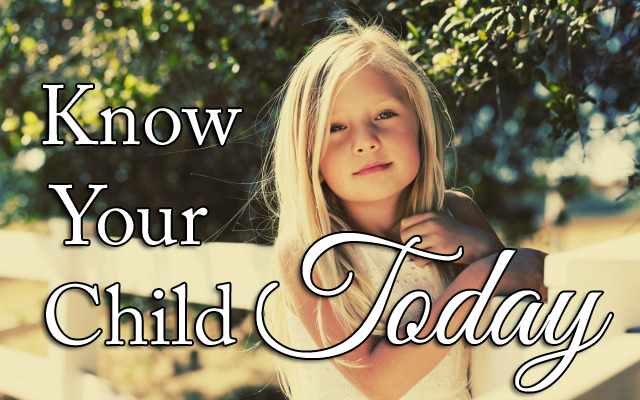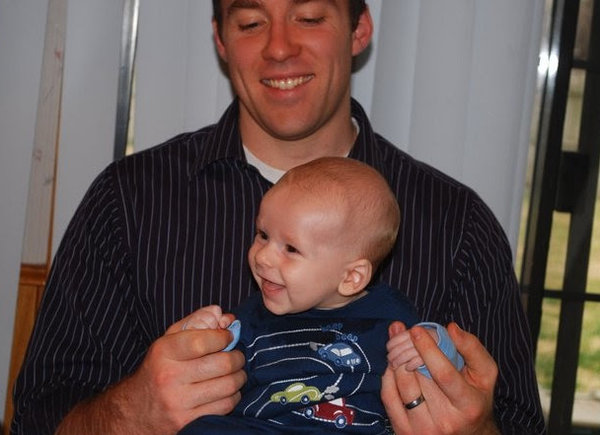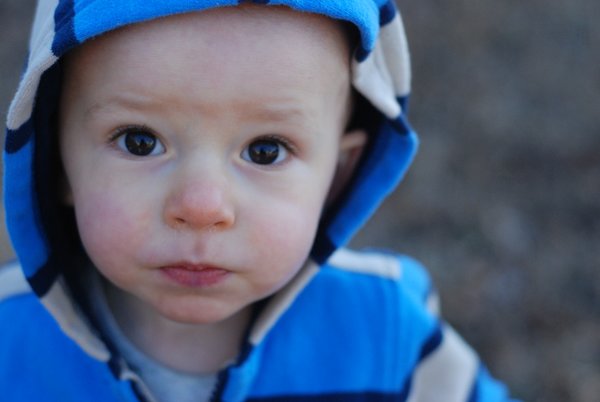Know Your Child Today


One of the most fun things to do with a newborn baby is to see who he looks like. From the very start, we look at these beautiful children with comparing eyes ready to categorize them in some way. From your dad’s eyes to your brother’s pouty lip, we look for the familiar, don’t we? Those familiar traits instinctively draw out deeper love and connection! As that child grows, the categorizing continues into realms of behavior, attitudes, and temperament. This cataloging is one of the reasons parents should be considered the expert on their child. We are seeing it all and constantly studying to further know and connect with our children. One of the advantages of homeschooling and being your kids’ primary instructor is an even greater knowledge of our children’s skills and limitations. But have you looked intently at who your child is with a mind open to seeing changes or misconceptions? Are you focusing on understanding them as much as you are their academic record? While we may be experts, infallible we are not.

I have known a few families where one child goes astray in one way or another and a common denominator is always the lack of understanding or acknowledgement in this child’s differences. Often the parents treated the child as though they were (or should be) just like them (commonly the same gender parent). To a misunderstood and immature mind, when core personality traits aren’t understood, all the parents’ instruction and guidance can come into question. Truly knowing and acknowledging our children – especially when they are not like us in some significant ways – is critical to fully equipping them to succeed and glorify God with their life.

My mother is a very extroverted (gets energy from people) person while my father is introverted (gets energy from being alone). No one ever said I should feel a certain way other than obeying God, but somewhere I got in my head that since my mother is a girl then I would be like her because I am a girl. Turns out I’m very introverted – like my dad – but spent the first 20 years of my life not really knowing the difference and pushing myself to lengths that just made me sick and miserable. I’m 36 and still struggle with the compulsion to be a people person, but physically just can’t keep up. This wasn’t some grand neglect on the part of my parents but more of a lack of vocabulary on the subject. We now have mainstream tools like love languages, temperaments, and color codes to better understand each other, as long as we pay attention. In knowing our children, we’re really talking about blind spots. Parents don’t set out to ignore or misunderstand their children. In some cases, children don’t ever communicate feelings of disconnect or difference until there’s already a major problem. It’s asking the questions you think you already know the answers to and being willing to shift gears when you’re surprised at the responses. It’s about being faithful to revisit who your children are today.
Amy Butler is a disciple of Christ, the wife of an engineer, mother of two, part time piano teacher, and a lover of the natural world God has blessed us with. You can read her writings of balance at http://www.writebalance.org/.














































